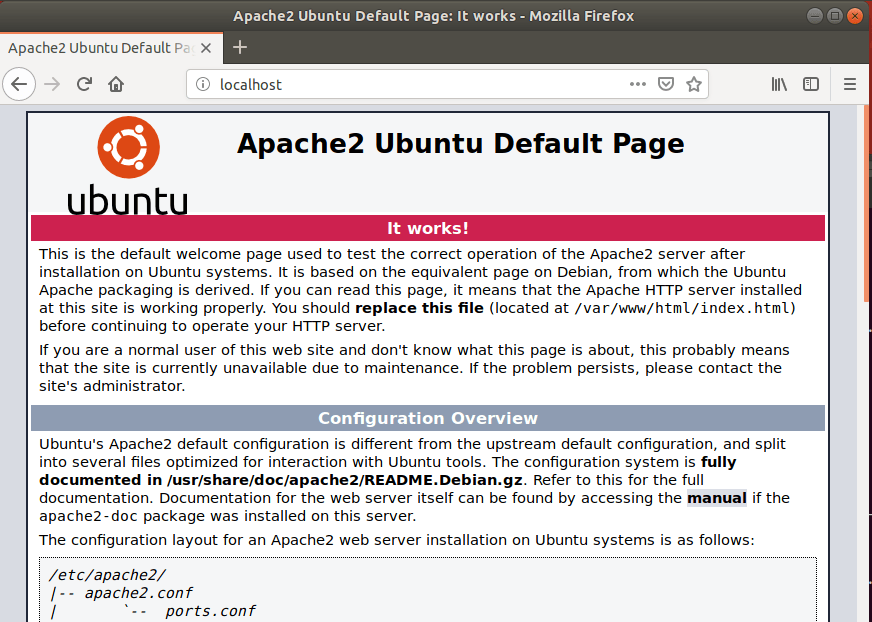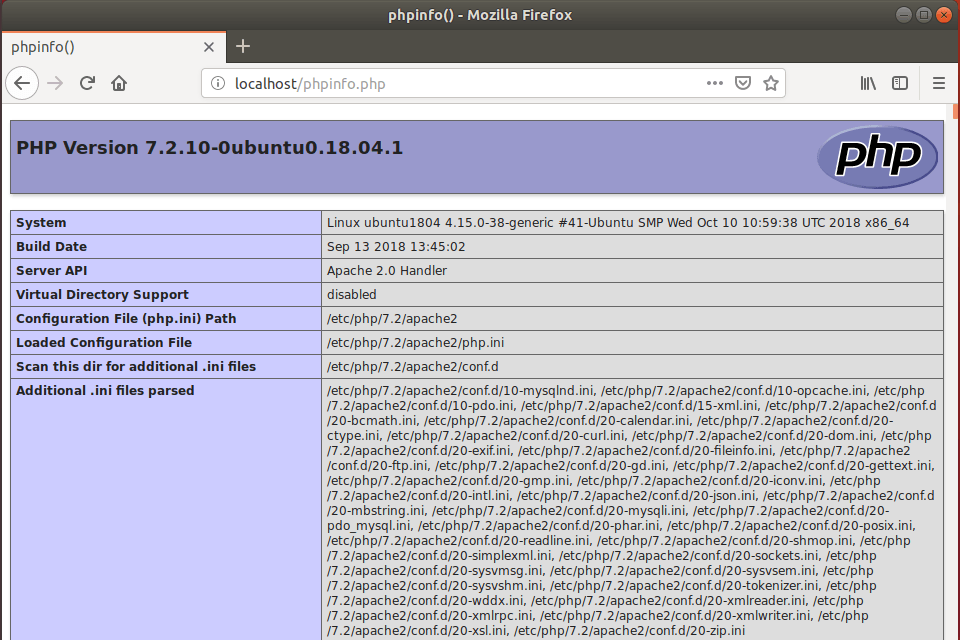This article explains installing Rubedo eCommerce CMS with Apache support on Ubuntu.
Rubedo is an open-source PHP CMS / eCommerce platform based on Zend Framework, MongoDB, Elasticsearch & AngularJS. It allows web admins and users to build portals for secure extranet, online databases, e-commerce, and multilingual sites.
Installing Rubedo CMS with Apache on Ubuntu Linux provides a powerful and flexible platform for building secure extranet, online databases, e-commerce, and multilingual sites.
Rubedo CMS is a scalable PHP-based CMS that performs at a high level and is designed for ease of use, allowing enterprises and business owners to collaborate and automate engaging experiences with users across multiple devices, including mobile. Apache is the most popular open-source web server available today, and it provides a reliable and secure environment for running web applications.
Ubuntu Linux is a popular and well-supported operating system that provides a stable and secure environment for running web applications. Combining Rubedo CMS with Apache on Ubuntu Linux allows you to create a powerful and flexible platform for building and managing digital content.
For more about Rubedo CMS, please check their Homepage
To get started with installing Rubedo, follow the steps below:
Install Apache2 HTTP Server
Rubedo CMS requires a web server, and the Apache2 HTTP server is the most popular open-source web server available today. To install the Apache2 server, run the commands below:
sudo apt update sudo apt install apache2
After installing Apache2, the commands below can stop, start, and enable the Apache2 service to always start up with the server boots.
sudo systemctl stop apache2.service sudo systemctl start apache2.service sudo systemctl enable apache2.service
Now that Apache2 has been installed browse your browser to the URL below to test whether the web server works.
http://localhost

If you see the page above, then Apache2 is successfully installed.
Install MongoDB
To get the latest version of MongoDB, you must add its repository to Ubuntu. To do that, run the commands below to add the official repository key.
sudo apt-key adv --keyserver hkp://keyserver.ubuntu.com:80 --recv 2930ADAE8CAF5059EE73BB4B58712A2291FA4AD5
After adding the repository key to Ubuntu, run the commands below to add the MongoDB repository to your system…
echo "deb [ arch=amd64,arm64 ] https://repo.mongodb.org/apt/ubuntu xenial/mongodb-org/3.6 multiverse" | sudo tee /etc/apt/sources.list.d/mongodb-org-3.6.list
Now that the repository and key have been added to Ubuntu run the commands below to install the package.
sudo apt update sudo apt install mongodb-org mongodb-org-server
By default, MongoDB listens on port 27017. After installation, the local server should be able to communicate with MongoDB. To verify whether MongoDB is running and active, run the commands below:
sudo systemctl start mongod sudo systemctl status mongod
You should see something like the lines below:
Install PHP 7.2 and Related Modules
Rubedo CMS is a PHP-based CMS, and PHP is required. However, PHP 7.2 may not be available in Ubuntu’s default repositories. To run PHP 7.2 on Ubuntu 16.04 and previous, you may need to run the commands below:
sudo apt-get install software-properties-common sudo add-apt-repository ppa:ondrej/php
Then update and upgrade to PHP 7.2
sudo apt update
Next, run the commands below to install PHP 7.2 and related modules.
sudo apt install php7.2 libapache2-mod-php7.2 php7.2-common php7.2-mongodb php7.2-gmp php7.2-curl php7.2-intl php7.2-mbstring php7.2-xmlrpc php7.2-gd php7.2-bcmath php7.2-xml php7.2-cli php7.2-zip
After installing PHP 7.2, run the commands below to open the PHP default configuration file for Apache2.
sudo nano /etc/php/7.2/apache2/php.ini
The lines below are a good setting for most PHP-based CMS. Update the configuration file with these and save.
file_uploads = On allow_url_fopen = On short_open_tag = On memory_limit = 256M upload_max_filesize = 100M max_execution_time = 360 date.timezone = America/Chicago
Every time you change the PHP configuration file, you should restart the Apache2 web server. To do so, run the commands below:
sudo systemctl restart apache2.service
Once PHP is installed, create a test file called phpinfo.php in the Apache2 default root directory to test whether it’s functioning. ( /var/www/html/)
sudo nano /var/www/html/phpinfo.php
Then, type the content below and save the file.
<?php phpinfo( ); ?>
Next, open your browser and browse to the server’s hostname or IP address, followed by phpinfo.php
http://localhost/phpinfo.php
You should see the PHP default test page.

Download Rubedo’s Latest Release
To get Rubedo’s latest release, you may want to download it from its download page. Then, install Composer, Curl, and other dependencies to get started…
sudo apt install curl git curl -sS https://getcomposer.org/installer | sudo php -- --install-dir=/usr/local/bin --filename=composer
After installing curl and Composer above, change into the Apache2 root directory and download Rubedo packages from GitHub… Always replace the branch number with the latest branch….
Download and extract the downloaded content into the Apache2 root directory.
cd /tmp wget https://github.com/WebTales/rubedo/archive/3.4.0.zip unzip 3.4.0.zip sudo mv rubedo-3.4.0/ /var/www/html/rubedo
After that, run the installer script to download requirements via Composer
cd /var/www/html/rubedo sudo ./rubedo.sh
Then, run the commands below to set the correct permissions for the Rubedo root directory and give Apache2 control.
sudo chown -R www-data:www-data /var/www/html/rubedo/ sudo chmod -R 755 /var/www/html/rubedo/
Configure Apache
Finally, configure the Apahce2 site configuration file for Rubedo. This file will control how users access Rubedo content. Run the commands below to create a new configuration file called rubedo.conf.
sudo nano /etc/apache2/sites-available/rubedo.conf
Then copy and paste the content below into the file and save it. Replace the highlighted line with your domain name and directory root location.
<VirtualHost *:80>
ServerAdmin [email protected]
DocumentRoot /var/www/html/rubedo/public
ServerName example.com
ServerAlias www.example.com
<Directory /var/www/html/rubedo/public/>
Options FollowSymlinks
AllowOverride All
Require all granted
</Directory>
ErrorLog ${APACHE_LOG_DIR}/error.log
CustomLog ${APACHE_LOG_DIR}/access.log combined
</VirtualHost>
Save the file and exit.
Enable the Rubedo and Rewrite Module
After configuring the VirtualHost above, please enable it by running the commands below.
sudo a2ensite rubedo.conf sudo a2enmod rewrite sudo systemctl restart apache2.service
Then open your browser and browse to the server domain name. You should see the complete Rubedo setup wizard. Please follow the wizard carefully.
http://example.com/
Then, follow the on-screen instructions and complete the setup.
That’s it!
Congratulation! You have successfully installed Rubedo CMS on Ubuntu 16.04 | 18.04 and 18.10.
You may also like the post below:

Leave a Reply